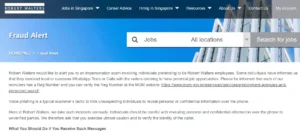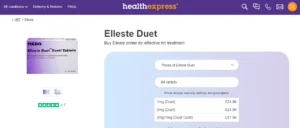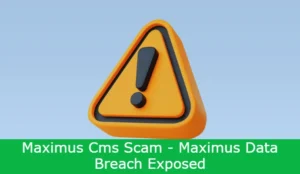Cossette Advertising Media Scam: Are you looking for a remote job opportunity? Beware of the Cossette Advertising Media scam. This phishing email scheme is on the rise, targeting unsuspecting job seekers like yourself.
In this article, we will unmask the tactics used by scammers and provide you with warning signs to look out for. Stay one step ahead and protect yourself from falling victim to this remote job phishing scam.
Table of Contents
The Rise of Remote Job Scams
If you’re searching for a remote job, be aware of the rise in remote job scams. Remote job scams have become increasingly prevalent, targeting individuals who are seeking flexible work opportunities. Scammers often pose as legitimate employers or recruitment agencies, promising high-paying jobs with minimal effort.
They may use sophisticated tactics, such as creating fake websites or sending phishing emails, to trick unsuspecting job seekers into providing personal information or paying upfront fees. These scams can result in financial loss, identity theft, and even emotional distress.
To avoid becoming a victim, it’s crucial to research potential employers, verify job postings, and never disclose sensitive information or send money to unfamiliar sources. Stay cautious and trust your instincts when it comes to remote job opportunities.
Unmasking the Cossette Advertising Media Scam
You should be aware of the tactics used in the Cossette Advertising Media Scam, as they aim to deceive job seekers with fraudulent remote job offers. The scammers behind this scheme use phishing emails to lure unsuspecting victims into their trap.
These emails often appear legitimate, mimicking the branding of reputable companies like Cossette Advertising Media. They may promise attractive job opportunities with high pay and flexible working hours, making them even more enticing.
However, once you fall for their deception and accept the job offer, you’ll soon realize that it was all a ruse. Instead of a legitimate remote job, you’ll be left empty-handed and possibly even scammed out of your personal information or money.
Therefore, it’s crucial to stay vigilant and verify the legitimacy of any job offers before providing any personal or financial information.
How the Phishing Email Scheme Works
First, scammers create convincing phishing emails that appear to be from reputable companies and use them to trick job seekers into revealing personal information or falling for their fraudulent remote job offers.
These phishing emails are carefully crafted to mimic the language and design of legitimate job postings, making them difficult to distinguish from the real ones. They often contain enticing job descriptions, promising high salaries and flexible working hours to lure unsuspecting victims.
The scammers leverage the trust and credibility of well-known companies to make their schemes appear legitimate and trustworthy. Once the unsuspecting job seekers respond to these emails, the scammers then proceed to collect their personal information, such as social security numbers, bank account details, and other sensitive data. This information is then used for identity theft, financial fraud, or sold to other cybercriminals on the dark web.
It’s crucial for job seekers to remain vigilant and cautious when receiving job offers via email, ensuring they verify the legitimacy of the sender and the job opportunity before sharing any personal information.
Warning Signs and Red Flags to Look Out For
Watch out for the common warning signs and red flags that can help you identify a potential phishing email scam. One of the first things to look out for is poor spelling and grammar in the email. Phishing scammers often make mistakes in their messages because they aren’t native English speakers or they’re rushing to send out as many emails as possible.
Another warning sign is a sense of urgency in the email. Scammers will often try to create a sense of urgency to pressure you into taking immediate action without thinking.
Be cautious if the email asks for personal or financial information, especially if it claims to be from a reputable company. Legitimate companies will never ask you to provide sensitive information through email.
Lastly, be wary of suspicious email attachments or links. These could contain malware or lead you to a fake website designed to steal your information. Stay vigilant and always double-check before clicking on anything suspicious.
Protecting Yourself From Remote Job Phishing Scams
To ensure your safety, always be cautious of suspicious emails and refrain from clicking on any attachments or links that may lead to remote job phishing scams. Phishing scams can be disguised as legitimate job opportunities, but they’re designed to steal your personal information or infect your computer with malware.
To protect yourself, it’s important to verify the legitimacy of the job offer before taking any further action. Research the company and check their official website for any job postings. Be wary of emails that contain spelling or grammatical errors, as well as those that ask for sensitive information such as your social security number or bank account details.
Trust your instincts and if something feels off, it’s better to be safe than sorry. Stay vigilant and keep your personal information secure.
Frequently Asked Questions
What Other Types of Scams Are Common in the Remote Job Industry?
When looking for remote jobs, be cautious of common scams. These may include:
- Fake job postings
- Pyramid schemes
- Requests for personal information
Always research and verify the legitimacy of the job offer before proceeding.
Are There Any Specific Industries or Companies That Are More Prone to Remote Job Scams?
Certain industries or companies may be more prone to remote job scams. It’s important to be cautious and do your research.
Look out for red flags, like unsolicited job offers or requests for personal information.
How Can Scammers Access Personal Information Through a Phishing Email?
Scammers can access personal information through a phishing email by tricking you into clicking on a malicious link or downloading an attachment.
They may then steal your login credentials or install malware on your device.
What Steps Can Individuals Take to Report a Remote Job Phishing Scam?
If you come across a remote job phishing scam, take these steps to report it:
1) Save the email as evidence.
2) Forward it to your email provider.
3) Report it to the FTC or your country’s equivalent agency.
Are There Any Legal Actions That Can Be Taken Against Scammers Involved in Remote Job Phishing Scams?
You can take legal actions against scammers involved in remote job phishing scams.
Consult with a lawyer to understand your options and gather evidence to support your case.
Conclusion
In conclusion, it’s crucial to remain vigilant when searching for remote job opportunities to avoid falling victim to scams like the Cossette Advertising Media phishing email scheme.
By being aware of the warning signs and red flags, and by taking necessary precautions to protect personal information, individuals can safeguard themselves against such scams.
Remember to always verify the legitimacy of job offers and never provide sensitive information without proper authentication. Stay informed and stay safe in the online job market.
Also Read
Interquest Group Recruitment Scam – Don’t Fall Victim
Bycoinx Scam or Legit? Don’t Fall Victim to Bycoinx.Com
MM Chrono Reviews – Is MM Chrono Legit or a Scam?
Also Read
Fpc Technology Group Scam – Discover the shocking truth
Goldbeck Recruiting Text Message Scam Exposed
Espacexio Scam or Legit? – Don’t be fooled by Espacexio.Com
Also Read



















































